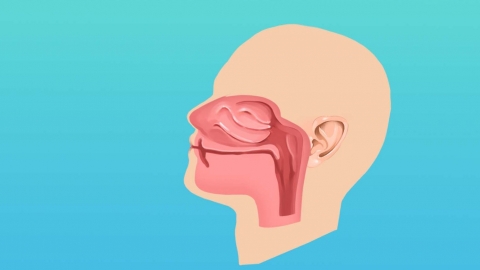Why does the throat make a wheezing sound when breathing, and what should be done?
Generally speaking, the throat refers to the pharynx. A bellows-like sound in the throat during respiration may be related to laryngeal muscle tension, dry airways, acute laryngitis, bronchial asthma, chronic obstructive pulmonary disease (COPD), and other causes. It is recommended to seek timely medical advice and undergo treatments such as general care and medication under a doctor's guidance. Detailed explanations are as follows:

1. Laryngeal Muscle Tension
After intense physical activity, the muscles in the throat may involuntarily contract and tighten, causing airflow to pass through a narrowed laryngeal passage during breathing and producing a sound similar to that of a bellows. It is recommended to relax, rest appropriately, and allow the body to gradually return to a calm state.
2. Dry Airways
When the airways are dry, there is reduced secretion on the mucosal surface, and airflow passing through the narrowed airway during respiration may produce a bellows-like sound. It is advisable to drink more water to keep the respiratory tract moist.
3. Acute Laryngitis
Acute laryngitis is usually caused by bacterial or viral infections. The inflammation leads to congestion and swelling of the laryngeal mucosa, obstructing airflow during breathing and producing a bellows-like sound. It is generally accompanied by symptoms such as hoarseness, sore throat, and cough. Medications such as Amoxicillin Capsules, Ribavirin Capsules, and Prednisone Acetate Tablets may be used under a doctor's instructions.
4. Bronchial Asthma
Bronchial asthma is associated with airway hyperresponsiveness. Airway inflammation causes contraction of airway smooth muscles and increased mucus secretion, narrowing the air passages and producing a bellows-like sound during respiration. Symptoms such as wheezing, shortness of breath, and chest tightness are commonly experienced. Medications such as Salbutamol Sulfate Tablets, Budesonide Inhalation Aerosol, and Montelukast Sodium Tablets should be used according to medical advice.
5. Chronic Obstructive Pulmonary Disease
Chronic obstructive pulmonary disease is often associated with long-term smoking or inhalation of harmful particles or gases. Chronic inflammation of the airways and alveoli leads to airway narrowing and reduced lung elasticity, causing airflow obstruction during breathing and producing a bellows-like sound. Symptoms such as sputum production, dyspnea, and chest tightness may also occur. Medications such as Terbutaline Sulfate Tablets, Acetylcysteine Granules, and Ipratropium Bromide Aerosol should be used according to medical recommendations.
In daily life, it is recommended to maintain a light diet, increase water intake appropriately, and reduce the consumption of irritating foods such as spicy and greasy dishes to promote overall health.





